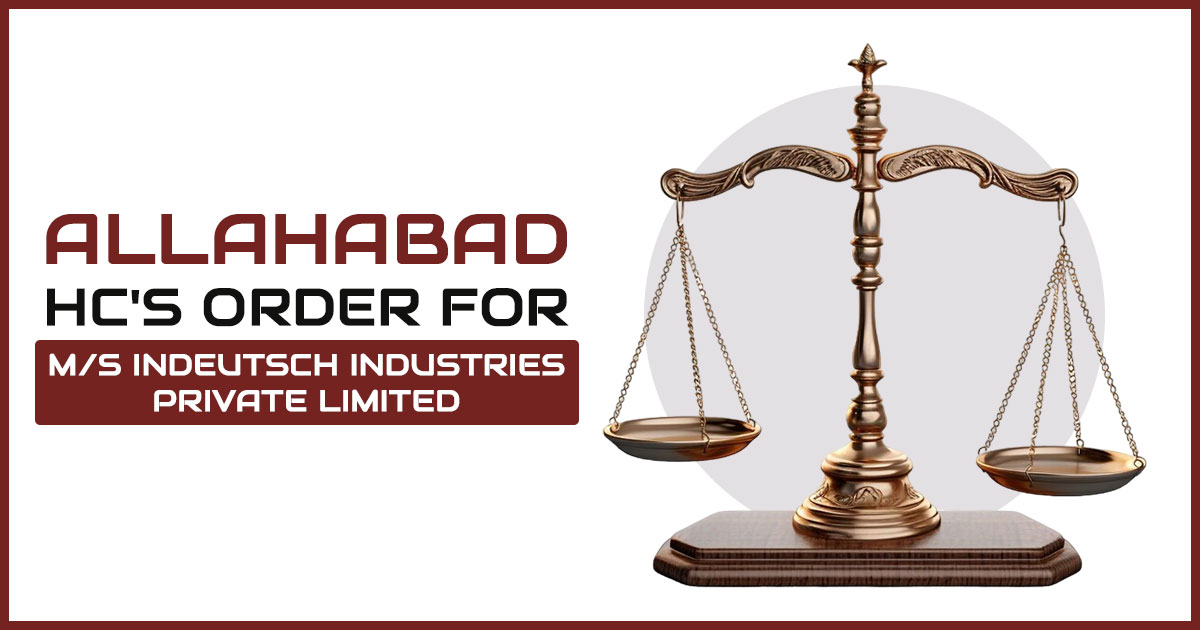
In a recent ruling, the Allahabad High Court noted that a single typographical error in an e-way bill cannot be a sufficient justification to impose a penalty. The judgment came in the case of Indeutsch Industries Private Limited Vs State of U.P. And 2 Other.
A writ petition was filed by Indeutsch Industries Private Limited against an order imposing a penalty under Section 129(3) of the Uttar Pradesh Goods and Services Tax Act, 2017.
The petitioner is a company in the business of manufacturing artist brushes, had sold goods to another firm, and generated an e-way bill for their transportation. Due to a problem with the initial truck assigned for transportation, the goods were loaded onto a different vehicle.
However, the e-way bill still contained the incorrect truck number. When the vehicle was stopped for verification by the authorities, they detained the goods, citing the discrepancy in the GST e-way bill.
The petitioner argued that the mistake was merely a clerical error and that there was no intention to evade tax. They presented supporting documents, including the tax invoice, packing list, and bill of entry, which indicated that all necessary duties and taxes had been paid. The petitioner’s counsel referred to a letter from the transporter explaining the reason for the change in the truck and contended that the penalty was unjustified.
The High Court analyzed the case and found that the goods were being transported from a Special Economic Zone (SEZ) unit to a Domestic Traffic Area (DTA), and all customs duties and IGST had been paid. The interception of the goods occurred shortly after they left the SEZ unit, leaving no room for misuse of the e-way bill.
Also Read:- What is GST E Way Bill & How To Generate Via Online or SMS in Your State?
The court noted that the burden of proof lies on the petitioner in certain cases, but when the error is a typographical or clerical one, the initial burden of proof is on the tax authorities to demonstrate an intention to evade tax.
In this case, the department failed to establish such intent and did not discredit the documents provided by the petitioner. The court also referred to a previous judgment that emphasized the importance of distinguishing between technical errors and intentional tax evasion.
Consequently, the Allahabad High Court quashed the orders imposing the penalty and allowed the writ petition. The court directed the refund of any amount deposited by the petitioner within four weeks.
This ruling highlights the need for tax authorities to differentiate between minor errors and deliberate attempts to evade taxes. It underscores the importance of a fair and impartial approach to tax enforcement, focusing on intended non-compliance rather than negligent mistakes.
The judgment serves as a reminder that penalties should be proportionate to the gravity of the offence and should not be imposed for minor typographical errors.
| Case Title | M/S Indeutsch Industries Private Limited |
| Case No. | WRIT TAX No. – 1314 of 2019 |
| Date | 19.02.2024 |
| Counsel for Petitioner | Nishant Mishra |
| Counsel For Respondent | C.S.C. |
| Allahabad High Court | Read Order |









